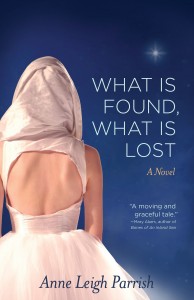Mistakes to avoid in Short Story Writing
 As the fiction editor for Eclectica Magazine, it’s been both a privilege and pleasure to read story submissions. Finding the handful of pieces that take my breath away is what it’s all about. The good ones shine through, those that are brilliant positively sparkle.
As the fiction editor for Eclectica Magazine, it’s been both a privilege and pleasure to read story submissions. Finding the handful of pieces that take my breath away is what it’s all about. The good ones shine through, those that are brilliant positively sparkle.
That said, it’s too bad that so many stories that come my way miss the mark. These are usually decently written, no obvious grammatical errors, no huge prose clunkers. What they fail to do is hold my interest and make me care about the outcome. I see the same mistakes over and over. I thought I’d make a list of these, as a sort of guide to aspiring authors.
Not telling a story. So many writers don’t seem to know what a story is, and isn’t. A story is not a nice description of how things are. It’s not a sensibility, or a mood. While those elements surely contribute to a story, a story itself is a narrative where there must be a change in the reader’s understanding of the events, or in the protagonist’s understanding. You leave a story seeing something you didn’t see at the outset, something that makes sense of what’s come before.
Trying to tell too many stories at once. In a short story, you need to figure out what the core is – the central theme, event, action, upheaval etc. All other story lines wrap around that central core, supporting it, or opposing it as a way to further illustrate what you’re driving at. Keep it simple. Don’t have too many characters, or an overly complicated plot. As you write, it’s very tempting to bring in an element that seems really interesting or colorful, but unless it fits with the whole, leave it out.
Characters with no inner life. A lot of stories that come through my queue feature people I couldn’t care less about, because I don’t know what makes them tick. I see what they do and where they live. I hear their conversations. But what do they feel? What do they care about? What are they most afraid of losing, or willing to fight for? If I don’t know what a character has at stake, I stop reading. So, make me care. Show me your character in a moment of crisis. She doesn’t have to act bravely or wisely, but in a way I recognize as a fellow human being.
 Dialog that’s stiff or unnatural. Think about how people really talk to each other. They often don’t use complete sentences. Sometimes they swear. Are they cynical, sarcastic? Are they barely holding themselves together under an emotional strain? Make note of funny, strange, or colorful things you overhear people say, and find a way to work them into your fictional exchanges. One of my stories has my protagonist overhearing two strangers talking, and one says, “She’s as crazy as a box of hair.”
Dialog that’s stiff or unnatural. Think about how people really talk to each other. They often don’t use complete sentences. Sometimes they swear. Are they cynical, sarcastic? Are they barely holding themselves together under an emotional strain? Make note of funny, strange, or colorful things you overhear people say, and find a way to work them into your fictional exchanges. One of my stories has my protagonist overhearing two strangers talking, and one says, “She’s as crazy as a box of hair.”
Bad pacing. Nothing kills a story faster for me than bad pacing. I give any piece about five pages, and if the action hasn’t gotten off the ground, I bail out. Equally bad is pacing that races along, skimming crucial scenes. Figure out what’s most important in your story, and spend enough time on it, but don’t drag it out. You have to keep moving.
Keeping the reader at arm’s length. Beginning writers tend to over-explain, as if they’re afraid that their readers won’t “get it.” Readers are asked to trust authors and suspend their disbelief; and writers must trust readers to be smart enough to fill in a few gaps for themselves. If you think you have to spell everything out, you may be assuming that your reader is pretty dumb. You need to show, not tell. Draw the reader in; let her experience what’s going on right up front, not from some cozy seat up in the balcony.
An ending that’s too neat. When I come to the end of a story, I like something left to my imagination. Maybe the protagonist will get the boy back, after all. Maybe she’ll get to a point where she can really move on with her life. Maybe she’ll meet someone even better. I want to decide for myself what happens. At this point, the author no longer gets to call the shots. It’s okay to leave some ambiguity and room for interpretation. You don’t need to tie everything up and have your characters live happily ever after, and in fact, it’s a lot better if you don’t.
I close with what someone once told me about the goal of fiction: “To lift us off from reality, and startle us into recognition.” Avoid mistakes, write the story only you can write, and do it brilliantly!
—
Anne Leigh Parrish’s debut novel, What Is Found, What Is Lost, came out this October from She Writes Press. Her second story collection, Our Love Could Light The World (She Writes Press, 2013) was a finalist in both the International Book Awards and the Best Book Awards. Her first collection, All The Roads That Lead From Home (Press 53, 2011) won a silver medal in the 2012 Independent Publisher Book Awards. She is the fiction editor for the online literary magazine, Eclectica. She lives in Seattle.
What Is Found, What Is Lost: A Novel (She Writes Press, October 2014)
Our Love Could Light The World: Stories (She Writes Press, 2013), Finalist the short story category of the 2014 Next Generation Indie Book Awards; Finalist in both the 2013 International Book Awards and the 2013 Best Books Awards
All The Roads That Lead From Home: Stories (Press 53, 2011), 2012 Independent Publisher Book Awards Silver Medal Winner
Website: www.anneleighparrish.com
Twitter: www.twitter.com/AnneLParrish
Facebook: www.facebook.com/AnneLeighParrish
Category: Contemporary Women Writers, How To and Tips
Comments (24)
Trackback URL | Comments RSS Feed
Sites That Link to this Post
- Mistakes to avoid in Short Story Writing | Toni Kennedy : A Writing Life | February 1, 2016
- How to avoid mistakes with your story | jean's writing | January 28, 2016
- Mistakes to avoid in Short Story Writing : Women Writers, Women’s Books | Toni Kennedy : A Writing Life | October 13, 2015
- Mistakes to Avoid in Short Story Writing - Anesa Miller | July 23, 2015
- Top Picks Thursday 07-16-2015 | The Author Chronicles | July 16, 2015


























Biggest short story ‘fail’ that I see over and over again is, as you put, not realising what a story is. A story has a beginning, a middle and and end ~ so often they’re just essays or sketches, and you turn over to the last page and … nothing happens. If you haven’t got a good end (preferably a totally unexpected one), you haven’t got a story, you’ve just got a brief insight into the character(s)’ life.
I think at least 50% of the self-published short stories I see are like this.
Thank you for the tips. As a neophyte writer, I am stil getting to grips with all of the tricks of the trade. At times it feels an uphill struggle but I love it!
This is a really great list. I’ve judged some short story competitions and honestly grieved at having to pass over well-written stories that started out beautifully but, by page 2, had wandered off into either anecdote or forgot to come back from the flashback scenes to return to the story itself. Thank you for this piece.
As a pro freelance editor, I can’t praise this article enough. Anne hit on so many issues that I have also found with short stories. Too many authors simply don’t seem to understand what a story must contain to be successful in the sense that it holds a reader’s interest and makes an impression. I will pass this article on to people I work with.
This helped me so much. This is something I struggle with “If you think you have to spell everything out, you may be assuming that your reader is pretty dumb.”
This is a good reminder for me.
Excellent checklist!
Excellent points! I would like to add that when it comes to dialogue, it often helps to read it out loud to see how it sounds like. Or try to rehearse with a friend. If it doesn’t feel natural, it will show.
As a writer, it’s easy to get caught up in ideas and forget the important parts and odd quirks about a character. Although I’ve mostly written creative non-fiction, I find you have to remember those elements that make my perspective and character flawed, but also human and relatable. Thanks for sharing great ideas and tips for writers!
Anna Leigh, what a great piece! My issue is an ending that is too neat! Real life certainly come in neat little episodes, does it?
Useful and informative. I have a first draft, 6500 words or so that I’ve been soliciting feedback on and this will help me approach a revision with a goal in mind. Short stories are new to me and I think your examples will be easy to follow (or avoid). Thank you!
Very succinctly said, thank you. I read for Narrative Magazine and I have found exactly the same mistakes repeated over and over. I’m going to save this link!
Hello Anna Leigh, I found your article on Mistakes to avoid in short story writing very useful. Thank you very much for sharing your ideas. I am in the process of putting together my very first website/blog with Medium and would be pleased if you would allow me to use a link to your article? I feel many people would find it helpful. I am on Facebook and Twitter (HilaryCoombes@hilarycoombes) but as yet . . . no website 🙂
That last point about not ending too neat and leaving the end for the reader to imagine is a very good one. THank you!
Always good to hear these reminders!
A most excellent piece with euridite advice.
My problem is to know how much to explain. I like to write stories with surprising twists and I take great care in laying clues. Most people get it but some never do however many times they reread it! I wouldn’t consider them particularly dumb, perhaps just not on my wavelength.
What a clear and informative article – thank you. I’m a long form writer and struggle with short stories but I keep practising. One was even shortlisted in a national competition, but it took massive effort to get if right.
My chief “sin” is indulging in too many characters but I do err into complexity. I will re-read your article each time I start a new story.
Thanks for the tips! I tend to worry about over-explaining so sometimes I make the mistake of cutting too much or skimming.
Excellent tips. Thank you so much for sharing!